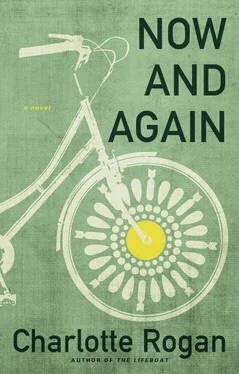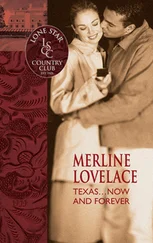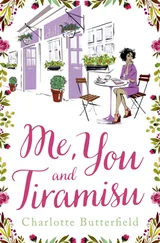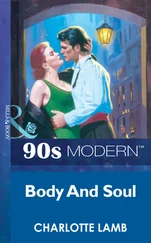Will also liked to visit the stores near the train tracks where the shelves were arrayed with the cheap, exotic things women needed for their lives. He liked the familiar way the shopgirls bantered and the sense of being perched on a hill overlooking a wide valley of choices. He always had the feeling he was invisible to the girls as he sauntered up and down past the tables of jewelry and undergarments, listening to their conversations, until one day a tall, attractive girl called out, “Wachulookinat?” He stayed away for a week, but eventually he crept back, armed with the camouflage of a shopping list and a small wad of cash, and told the girl he was there to buy a present for his mother.
“Your mother! Ainchu the ladies’ man.” She laughed before leading him to a display case full of cheap jewelry that looked like gold until the coloring rubbed off a week later against his mother’s skin.
After the trip to the women’s clinic, Will decided he should buy something for Tula too. He was writing his scholarship essay on his experience at the clinic, and he wanted to give Tula something to show his appreciation.
“Another present for your momma?” asked the girl.
Will had inherited from Lyle the ability to make his face blank, a trick that resulted in other people’s reading into his expression whatever they hoped to find in it, and now the girl said, “Or are you jes comintasee me.”
“It’s for my girlfriend,” said Will.
“Who’s your girlfriend?” asked a second girl, who was sitting at the cash register reading a magazine. “See if I know her.”
“Tula Santos,” said Will.
This revelation sent the girl with the magazine into peals of laughter. “The Virgin Mary herself!” she cried. “I thought she was into all of that purity ’n’ shit. I thought she was saving herself for Jesus.”
“Here,” said the tall girl. “How about getting her this little cross? This is just the kind of thing she’d like.”
Will knew he had made a mistake mentioning Tula’s name, but he squinted coolly at the girl and bought the cross. “I’ll see you next time,” he said, tucking his purchase into his pocket.
“Next time you need a gift, or next time you wantasee me?” she asked, following him to the door. Now she was smiling coyly, and the girl at the cash register gave him a friendly wave.
Will smiled back at them, feeling like he had cracked the code of how to deal with women. At least he felt that way until people at work started coming up to him and saying, “I hear you’re dating Tula Santos.” A few days after that Tula herself said, “I guess the girlfriend’s always the last to know.”
“It just kind of slipped out,” said Will, trying to make his face a blank. “If you want, you can come by for dinner on Sunday. You can help me with my essay after.”
“If I want?”
“I mean, I’d really like it if you came.”
On Sunday, Will told his parents to stay in the kitchen while he greeted Tula at the door. The plan was to get a few minutes alone before taking her into the kitchen to introduce her.
“This is a nice surprise,” said Lyle, who seemed to think Will wanted him to act as if they hadn’t been expecting anyone.
“I’m sorry to barge in on your dinner,” said Tula.
“You’re not barging in,” Will said to Tula, and to his father he said, “You knew Tula was coming, Dad. So it’s not really a surprise.” He expected his mother to smooth over the awkwardness, but she was bent over a sheaf of papers and he had to tug on her sleeve to get her attention.
Maggie had set the table with candles in special-occasion holders, but it was Tula who lit up the room, sparking off the faded china and transforming the old stories of Will’s childhood his parents insisted on telling into fresh and hilarious gems just by listening. “Headfirst into the diaper pail!” cried Maggie, tears streaming from her eyes.
“How do you like working at the prison, Mrs. Rayburn?” asked Tula when the platters of food were empty and the laughter had died down.
“It’s interesting,” said Maggie. “And I’m working in the prison school, which is rewarding too.”
“I’m glad it’s working out,” said Tula.
“It is for me,” said Maggie. “But not so much for the prisoners.” She tapped a quilted bag that slouched next to her on an empty chair.
“Okay!” said Will. “Who wants dessert?” But his mother was already opening the bag and spreading some papers across the surface of the table.
“I have evidence that some of the prisoners are innocent,” said Maggie. “Others are serving life sentences for petty crimes, and many were forced to plead guilty even if they’re not.” She took a tiny booklet out of the bag and handed it across to Tula. “And did you know,” she said, her voice dropping to a whisper, “that slavery is still absolutely legal?”
“At least you’re making their lives a little better,” said Tula.
“Am I?” asked Maggie. “That’s like saying that the slaves are lucky to have roofs over their heads. If we’re the ones who create the conditions, isn’t it dishonest to feel virtuous for making them better?”
“You didn’t create the conditions,” said Lyle.
“No,” said Maggie. “We all did.”
“You’re not the one who took their freedom away,” said Will. “They lost it by committing a crime.”
“That’s only true for the ones who are guilty,” said Maggie.
“But how do you know which is which?” asked Will. “I thought that’s what the judge and jury were for.”
“I’ve done a lot of research. I have some of the prison files right here, and the evidence is pretty overwhelming.”
“Files?” asked Will. “Do you mean you stole something from the prison?”
“Heavens no,” said Maggie. “These are only copies. Anyway, which is worse — taking the files or burying the evidence?”
Lyle jumped up from the table and began taking away the plates. “Stealing runs in the family,” he said, giving Will a desperate wink. “Does anyone want to hear about the time Will stole third base?”
“I do, Dad!” cried Will. Anything was better than the embarrassing path they were on. But Maggie was already forging ahead with other facts and statistics: the increasingly burdensome laws and enforcement efforts that unfairly targeted minorities, the 33 percent of male African American babies who would grow up to spend some time in prison, the legions who would lose their voting rights for life and be ineligible for housing assistance or college loans, the confiscation of property based not on conviction but on arrest. “And get a load of this!” she cried, holding up a piece of paper with Witness recants scrawled across the top.
Will snatched up the ketchup bottle and then the hen saltshaker, silently mourning the rooster pepper, which had broken long ago. The table rocked on the warped floor, its matchbook shim knocked out of place. The stubby candles slumped into their tarnished holders. In their frail light, everything seemed chipped and frayed, broken or about to break, including, he couldn’t stop himself from noticing, his mother.
“Add to that the fact that people are practically forced to plead guilty,” said Maggie, “and you can see how the system creates a permanent underclass.”
“I don’t see what you’re going to do about it!” Will blurted out just as Tula said warmly, “There must be something you can do.”
“I can see the headline now,” said Will. “Red Bud mother orchestrates prison break to free innocent man.”
“I’m not going to break anybody out of prison,” said Maggie.
“That’s what I mean,” said Will. “There’s probably nothing you can do.”
Читать дальше












